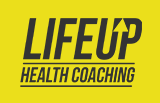As renowned brain coach, Jim Kwik, once famously said, “The most important thing is to keep the most important thing the most important thing.” It’s easy to get lost in incidentals if we don’t bear this in mind. A well-known story illustrates this: “Rocks, Pebbles, Sand: The Important Things in Life.”
A philosophy professor stood in front of his class with a few items laid out on the desk in front of him. First, he picked up a wide mouthed mayonnaise jar and carefully filled it with 2-inch rocks. He looked up at the class and asked,
“Is the jar full?”
The class nodded in agreement. “Let’s see,” said the professor, picking up a bag full of pebbles from the desk and proceeding to pour them gently into the jar, where they filtered down and settled around the larger stones.
“Is the jar full now?” he asked. The students agreed that, indeed, the jar was now full.“But wait!” said the professor, “there’s more.” He took a box of sand and shook it into the jar. The sand tumbled in, filling in the spaces between the big rocks and the pebbles.
“Now, I want you to recognize that this jar is your life,” he said.
“The bigger rocks represent the important things like spending time with your family or maintaining good health – whatever is so important you would be nearly destroyed to lose it.
“The pebbles represent other things in life that matter to you, but on a lesser scale. The pebbles are things like your house, your job or your car.
“The sand represents everything else. Just the small stuff. If you fill your jar with sand or pebbles first, you will have no room for the rocks. The same can be said of your life.”
I love that story. And it holds true in the realm of health as well. With the seemingly endless amount of information available on the internet, it’s hard to cut through the noise and discover what is of foundational importance for one to focus on.
An integrative health practitioner can help you to identify your Big Rocks so that you can focus on what’s most important to you. To extend the metaphor, let’s say that one of your Big Rocks is eating 7-9 servings of fruit and vegetables each day. In fact, eating 7-9 servings of fruit and vegetables each day is fundamental to integrative health coaching. Whereas it’s preferable to eat organic, fresh and local over frozen produce, you could view these as the pebbles – important and preferential, but not worth sacrificing the 7-9 servings of fruits and vegetables if you can only get frozen. You could view how to prepare certain fruits or vegetables food (cooked or raw) – as the sand in the jar.
The same can be said about exercise. For general health and fat loss, it’s important to perform a blend of flexibility, cardiovascular and strength training on a regular basis. Committing to a combination of these 3-5 times per week is a Big Rock. You could consider what program, methodology or exercise type you enjoy as your pebbles. Important? Sure, and not as important as the committed practice to movement itself.
Finally, sand would be tracking strength gains or heart rate variability to monitor progress and maximize your results. While supportive for continued development (especially to the more seasoned fitness enthusiast), there’s no point in doing so until routines are established and preferences are discovered.
LifeUP starts every coaching program with client ‘Big Rock’ discovery, asking ‘What 2-4 actions, when done regularly will yield us 80% of the desired results?’
When we have the Big Rocks in place, dropping in the pebbles and sand become much easier, with the most important pieces already set.







